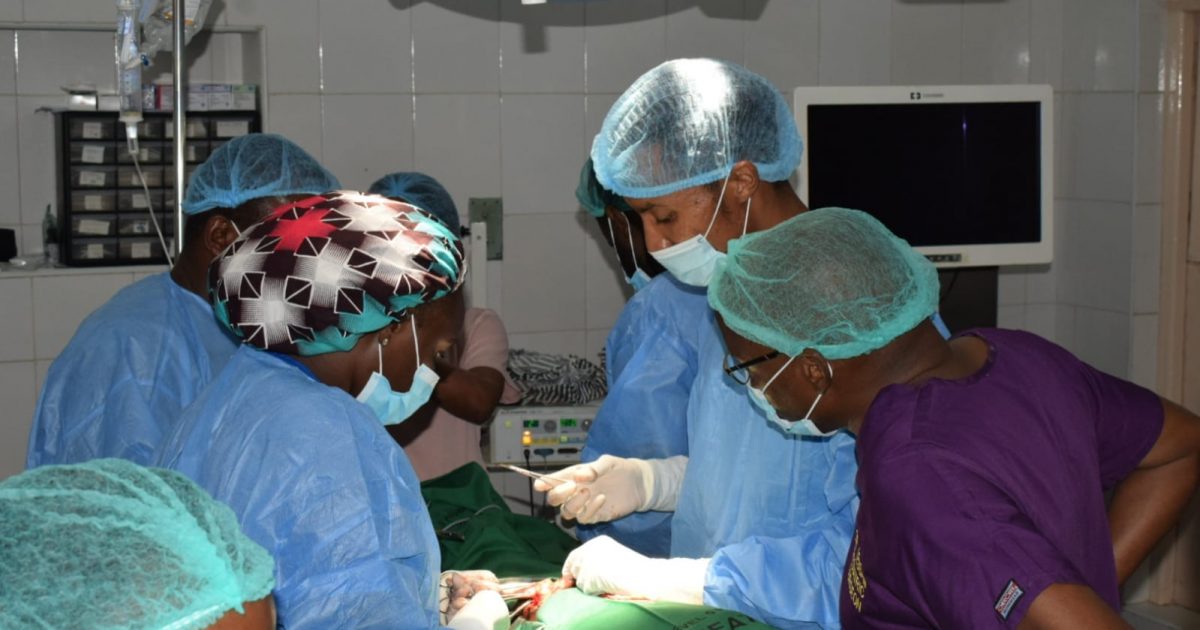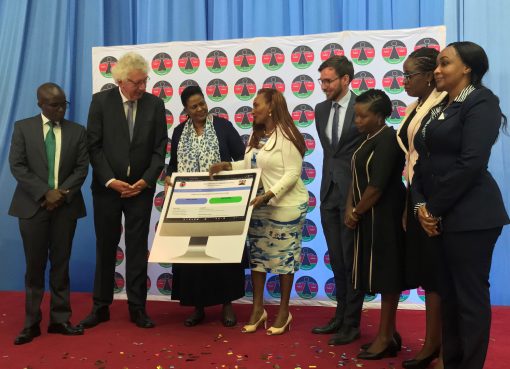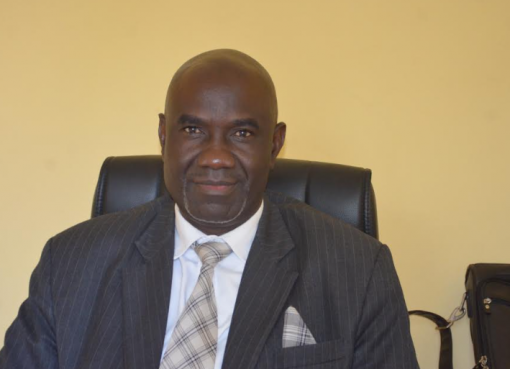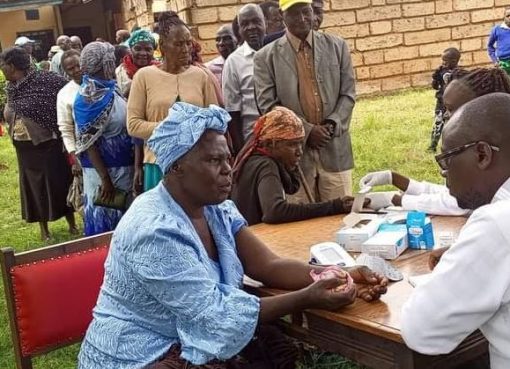At least 150 children from Nakuru County have benefited from a free medical camp, organized by the County Government in collaboration with the Kenya Association of Pediatric Surgeons.
Among the cases that the medical camp held at Nakuru Level 5 Teaching and Referral Hospital (NTRH) treated included congenital anomalies, trauma, undescended testicles (cryptorchidism), Hirsch sprung disease, hernia, hydrocephalus and burns.
Speaking during the event, the hospital Superintendent Dr. Aisha Maina said the turn-up was above their expectations, adding that the doctors attended all the patients aged between one to fifteen years
Maina urged Kenyans to develop a culture of going for medical screening, even when they are not feeling sick for early diagnosis to facilitate early treatment.
The medical superintendent said that up to 11 percent of all child patients in the country require surgery, with 90 percent of them admitted with issues that could be easily corrected by surgery such as congenital anomalies and injuries.
“Kids die or develop lifelong disabilities due to ailments that could easily be treated and corrected through surgery,” said Maina.
The medical camp involved 25 surgeons from Kenyatta National Hospital, Kenyatta University Teaching and Referral Hospital, University of Nairobi, Moi Teaching and Referral Hospital and Coast General Hospital.
NTRH Head Pediatric Surgeon Dr. Faith Bob said the four-day event had also been used as a training session for medical students from institutions in Kenya, Ghana and Ethiopia.
She assured parents that congenital diseases at birth such as a gastroschisis, a birth defect where intestines extend outside of the abdomen, blocked rear or partially developed intestines could be treated in a proper pediatric set-up.
“It is estimated that nine million infants are born with a defect that may kill them or result in lifelong disability every year,” said Bob.
According to the Chairperson of the Kenya Association of Pediatric Surgeons, Dr. Joel Lessan, the country has a huge gap in this skill, with only 25 qualified Pediatric surgeons in the country.
Lessan said there was need to invest in funding doctors to specialize in Pediatric surgery as besides children comprising half the population, African countries have 25 per cent of the burden of the world’s diseases with only 1.3 per cent of the world’s health workforce.
While other challenges have been attributed to the low numbers of Pediatric surgeons’ intake, Lessan added that the financial burden required for training could also not be ignored.
He was happy that the Pediatric Camp had helped clear the backlog of patients that have always been experienced in the higher level facilities in Nairobi and other referral facilities that have very long waiting lists.
Lessan said it was evident that without expanding and investing in necessary health infrastructure and human resources, child-related targets under the Sustainable Development Goals and Universal Health Care are unlikely to be met by 2030.
By Esther Mwangi and Charloth Chepkemoi





